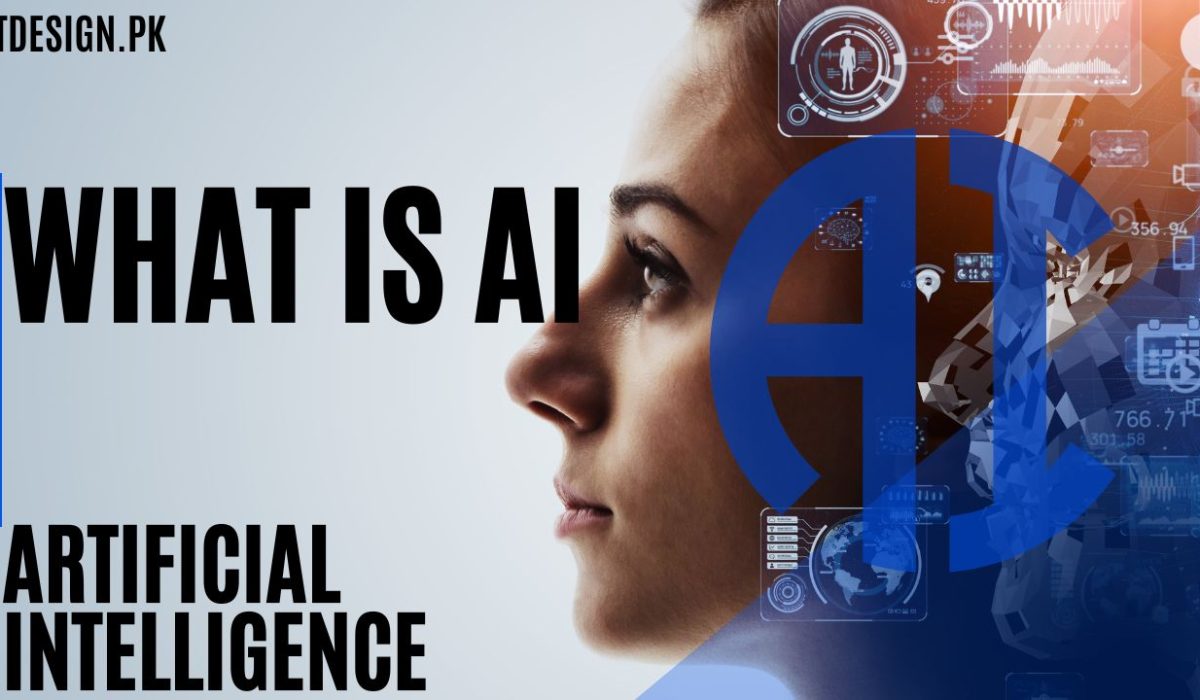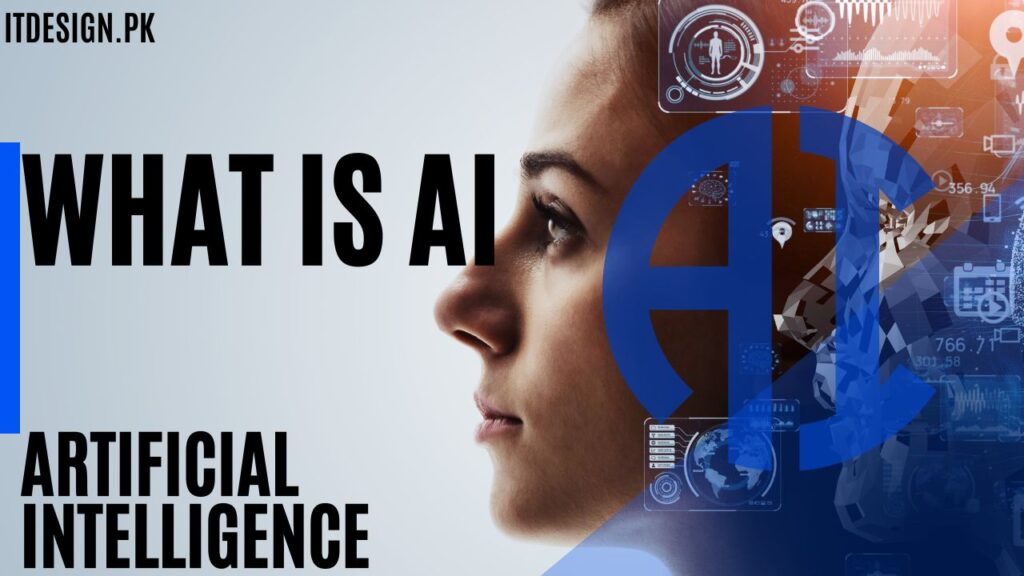Table of Contents
ToggleIntroduction
During the last two decades, artificial intelligence has gone from an idea that only existed within the world of science fiction to an integral tool in much of the fabric of modern daily life. This review will discuss the history, capabilities, and potential future of AI, with an emphasis on the serious progress made and the challenges being faced.
The Evolution of Artificial Intelligence
The history of artificial intelligence began as a theoretical vision. Its earliest pioneers shared the dream of constructing machines that could reproduce human intelligence. Initiatives at developing artificial intelligence started very slowly, and for several years, it was considered to be a distant possibility—almost science fiction rather than actual scientific research. Still, the capability of AI to perform hard, if not impossible, complex tasks and make decisions with accuracy that is out of this world has materialized in reality, thanks to the advances in computing power and data availability, and algorithmic innovations.
AI in Science Fiction and Reality
Science fiction has always been fascinated by the idea of intelligent machines, mostly portraying them as either benevolent helpers or existential threats. From Isaac Asimov’s “I, Robot” to the latest movie sensation “Ex Machina,” AI has been visualized in many ways. While these perceptions might be quite exhilarating to one’s imagination, the truth regarding AI today is much more sober and impactful. AI has already become an integral part of industries such as healthcare, finance, and transportation, among others, adding efficiency and giving insights like never before.
Human vs. Machine: The Abilities of AI
With the advancement of AI technology, it increasingly surpasses the human mind in certain respects. For example, in genomics and climate science, AI systems can now analyze large datasets much faster and more accurately than human analysts can do, respectively. The learning and improving on data over time by AI helps undertake the implementation of tasks that need precision and consistency and at times better than the human equivalent.
Conversational AI Technologies
One of the most striking developments in the field of AI has been in the area of conversational technology, like that seen with ChatGPT4o. Systems can understand and generate human-like text, thereby allowing them to interact in natural dialogues with users. Over just the last eighteen months, over a billion people have experienced conversational AI in use for customer service, personal help, and even therapeutic conversations.
AI in Art and Creativity
This domain is also very diversified, considering art and creativity. Here, too, AI has managed to hold its own quite well. AI-generated art, music, and poetry have captured public imagination, showcasing the technology’s ability to create original works. These tools, such as DeepDream and DALL-E, help to create images and compositions through the use of neural networks, and in the process expand the area of machinic creation, thus opening up avenues for new forms of expressions.
AI in Scientific Discoveries
AI is revolutionizing scientific research by making the discovery process faster. Machine learning algorithms help to analyze complex biological data in ways that lead to the identification of new drug compounds and the development of personalized medicines. Artificial intelligence, for instance, aids in predicting the molecular structure and the reactions of molecules almost immediately and could potentially lead to a groundbreaking discovery in chemistry.
Data and Processing Power
The improvement in data and processing power has been exponential in driving AI innovation. In this respect, AI systems can process large datasets in real time, therefore learning from massive information, leading to improved accuracy and efficiency. Such a growth in computational power also supports more sophisticated algorithms, which allows AI to tackle more difficult and complex problems.
AI as a New Digital Species
Prominent AI researcher Mustafa Suleyman advocates viewing AI as a new digital species. Such an understanding would mean that although AI is not biologically based, it has the characteristics of living organisms in terms of communication, reasoning, and learning. Suleyman makes the point that once we regard AI as something beyond a tool, society can operate in ways that ensure it is integrated better and will maximize its benefits.
Communication and Reasoning in AI
Modern AI systems are capable of advanced communication and reasoning. Technologies for Natural Language Processing make it possible for AI to both understand and generate human language, and thus they work remarkably in customer service, virtual assistants, and even creative writing. More precisely, the reasoning capabilities of AI allows it to solve complex problems and forecasts and provide recommendations through an analytical process.
Memory, Personality, and Originality in AI
Memory, personality, and originality are some other areas where AI has achieved significant progress. AI is not developed like any other run-of-the-mill software application but has memory enough to remember experiences that were meted out to it and can use those to customize certain future interaction. This is going to help particularly in applications such as virtual companions, where the more AI knows about the user’s preference, the better it can relate it for relevant support.
AI-Powered Companions
The concept of AI-based companions has been emerging, and the forecast is that soon AI will offer personalized, individual virtual companions. The significance lies in providing emotional support, helping through daily activities, and improving well-being. The integration of emotional intelligence in AI ensures that these companions can respond empathetically and appropriately to the emotions of humans.
AI in Everyday Professions
Artificial intelligence is dramatically changing many professions since it allows the activity to be readily available 24/7, and the quality of the service becomes better. In medicine, machines are being developed to provide doctors with perfect diagnosis to prescribe treatments. In learning, AI-based tutors deliver individual experience to students. The legal field benefits by analyzing the ability of AI to analyze legal papers and predict case outcomes. Organizations have commenced using AI in establishing the digital representation of organizations. AI entities can handle interactions from customers, give out information, and perform transactions to deliver a seamless, efficient user experience. The trend of recent times is that even in customer service, AI chatbots can deal with inquiries and resolve the problem in a fast and effective way.
Opportunities and Challenges
The opportunities brought about by using AI are tremendous, but they also present several key challenges. On one hand, this technology speeds up scientific discoveries, enhances education, and ultimately improves the health of humans. On the other side, issues regarding data privacy, job replacement, and transparency of decision making come to the surface. All these present an array of opportunities and risks; the former must be countered with balances risks; the latter, with proactive strategies.
AI in Education and Healthcare
AI will increase education personalization to become more productive and scalable. It will also increase learning due to AI-enabled platforms that will accommodate to individual learning styles and provide targeted recommendations for support improvement education outcomes. Concerning healthcare, Artificial Intelligence provides enhanced care for patients at a reduced cost, while detecting diseases, predicting patient conditions, providing suggested treatments.
Ethical Concerns and Safety
As AI increasingly becomes part of society, it has to consider and be guided by ethical concerns that include the operation of transparency, respect of privacy, and prevention of biases. This will be possible if those in research and policymakers do strive toward coming up with standards and policies that will have the capability of safeguarding individuals and society from the risks tied to AI systems.
Controlled Development
Unlike the previous technological revolutions, we can for once shape on purpose the way artificial intelligence is developed. The proactive approach will help us address potential threats in due time, thus assuring that AI develops in ways coherent to human values and societal needs. The delineation of clearly defined scope and level of safety benefits obtained from AI together with eliminating all the risks it brings along.
Empathy, Curiosity, and Invention in AI
AI will only be truly worthy of admiration if imbued with these qualities—empathy, curiosity, and invention. Suleyman suggests that AI should aim at reflecting the best attributes of humans: facilitating a symbiotic relationship between human and machine. Developing these will help us create AI systems that increase human capacity and are beneficial to the world around us.
A Responsible Mindset
Developing AI with a responsible mindset acknowledges the potential benefits artificial intelligence holds and commits to harnessing them in an ethical, continual learning manner. A focus on a responsible approach to AI development will unlock amazing benefits while, at the same time, working to minimize risks associated with this technology.
Conclusion
The world of artificial intelligence has, over decades, seen tremendous success and advances in technology—transforming from an idea that was just written about, to a transformative force within societies. As AI continues its development, it opens up both opportunities and challenges. Approaching the development of AI responsibly and proactively will guarantee the enhancement of our lives as well as create a future full of promise.



